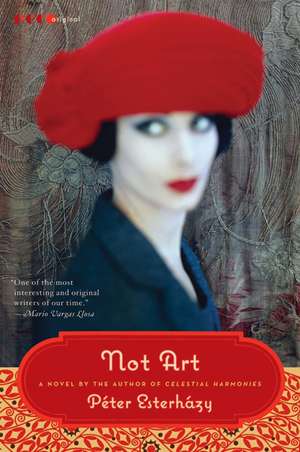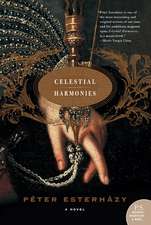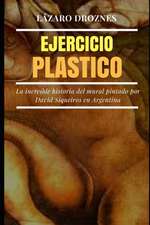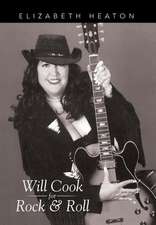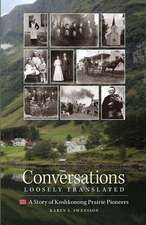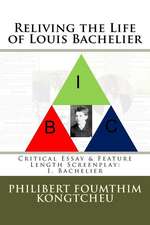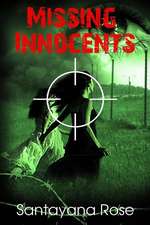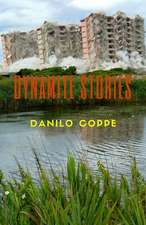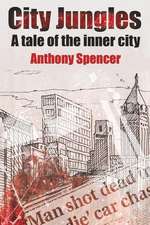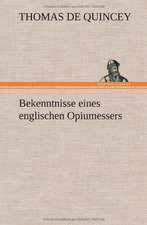Not Art: A Novel
Autor Peter Esterhazyen Limba Engleză Paperback – 15 feb 2010
—Mario Vargas Llosa
Winner of 2004 Peace Prize—Germany’s most prestigious literary honor—Peter Esterhazy, author of the acclaimed Celestial Harmonies, offers us Not Art, a uniquely brilliant novelized exploration of his mother’s life. Following through on his promise at the conclusion of his famed work, Helping Verbs of the Heart, Esterhazy touches on all aspects of life and philosophy relevant to readers today, in an extraordinary novel that centers on a mother’s relationship to her son and the game of football. Powerful and original, Not Art is a major contribution from one of Europe’s most significant writers and perennial contender for the Nobel Prize.
Preț: 99.30 lei
Nou
Puncte Express: 149
Preț estimativ în valută:
19.01€ • 20.65$ • 15.98£
19.01€ • 20.65$ • 15.98£
Carte disponibilă
Livrare economică 31 martie-14 aprilie
Preluare comenzi: 021 569.72.76
Specificații
ISBN-13: 9780061792960
ISBN-10: 0061792969
Pagini: 240
Ilustrații: black & white illustrations
Dimensiuni: 135 x 203 x 14 mm
Greutate: 0.18 kg
Editura: HarperCollins Publishers
Colecția Ecco
ISBN-10: 0061792969
Pagini: 240
Ilustrații: black & white illustrations
Dimensiuni: 135 x 203 x 14 mm
Greutate: 0.18 kg
Editura: HarperCollins Publishers
Colecția Ecco
Textul de pe ultima copertă
′I WILL WRITE ABOUT ALL THAT IN MORE DETAIL LATER.′
The final sentence of Helping Verbs of the Heart - was it a promise, a threat, a quote? In 1985, when Péter Esterházy′s book came out on unnumbered, black-edged pages, this much-cited sentence seemed most likely to be the manifestation of authorial posturing. After the publication of his books on his father Celestial Harmonies and Revised Edition, this sentence and the preceding book on his mother′s death, broken up into auxiliary verbs, now gain new meaning twenty-three years later in Not Art.
Not Art is the book of the reawakened mother, a mother who knows the offside rule, and whose language, which determines her relationship to the world, is the language of football. The son only exists in relation to it, just as everything and everyone else only exists in relation to this mother′s football language. Football, in the author′s last book a stage and a medium for private historiography, now acts as a worldview, its roots in his relationship to his mother and his mother tongue: a mother′s language complex.
Readers seeking ′family stories′ will find them - in subtly written, rounded stories. Those looking for emotions will find them too: platonic love, marital love filled with tenderness, and of course love for his mother and father. And those interested in the esterházyesque auto-reflexive textual world (where does the author begin and end) will not be disappointed either. Irony, beauty, history, the Magnificent Magyars, father, grandmother, aunt, uncle, mother, life and death, especially death, but beautifully written. And life too, of course, which comes before death.
′My mother talked her way through the entire sixties and seventies in French. Boy, even comrade sounds bearable in French. She slipped into the French language as if into a bunker. No, a bunker would be more German, concrete protection; language is a lighter form of asylum, if danger were ahead it would provide no protection, a hiding place, a hideout, a wing under which one cannot shelter. Whenever she left French she immediately moved into football. One might say my mother was on the run her whole life long. And one might also say that she was happy her whole life long.′
The final sentence of Helping Verbs of the Heart - was it a promise, a threat, a quote? In 1985, when Péter Esterházy′s book came out on unnumbered, black-edged pages, this much-cited sentence seemed most likely to be the manifestation of authorial posturing. After the publication of his books on his father Celestial Harmonies and Revised Edition, this sentence and the preceding book on his mother′s death, broken up into auxiliary verbs, now gain new meaning twenty-three years later in Not Art.
Not Art is the book of the reawakened mother, a mother who knows the offside rule, and whose language, which determines her relationship to the world, is the language of football. The son only exists in relation to it, just as everything and everyone else only exists in relation to this mother′s football language. Football, in the author′s last book a stage and a medium for private historiography, now acts as a worldview, its roots in his relationship to his mother and his mother tongue: a mother′s language complex.
Readers seeking ′family stories′ will find them - in subtly written, rounded stories. Those looking for emotions will find them too: platonic love, marital love filled with tenderness, and of course love for his mother and father. And those interested in the esterházyesque auto-reflexive textual world (where does the author begin and end) will not be disappointed either. Irony, beauty, history, the Magnificent Magyars, father, grandmother, aunt, uncle, mother, life and death, especially death, but beautifully written. And life too, of course, which comes before death.
′My mother talked her way through the entire sixties and seventies in French. Boy, even comrade sounds bearable in French. She slipped into the French language as if into a bunker. No, a bunker would be more German, concrete protection; language is a lighter form of asylum, if danger were ahead it would provide no protection, a hiding place, a hideout, a wing under which one cannot shelter. Whenever she left French she immediately moved into football. One might say my mother was on the run her whole life long. And one might also say that she was happy her whole life long.′
Recenzii
“A fine addition to an international fiction collection.” — Booklist
“Esterhazy’s prose is jumpy, allusive, and slangy. . . . There is vividness, an electric crackle. The sentences are active and concrete. Physical details leap from the murk of emotional ambivalence.” — John Updike, The New Yorker
“Esterhazy’s prose is jumpy, allusive, and slangy. . . . There is vividness, an electric crackle. The sentences are active and concrete. Physical details leap from the murk of emotional ambivalence.” — John Updike, The New Yorker
Notă biografică
Peter Esterhazy, a member of one of Europe's most prominent aristocratic families, was born in Budapest in 1950. His books, published mostly in Europe, are considered to be significant contributions to postwar literature.
